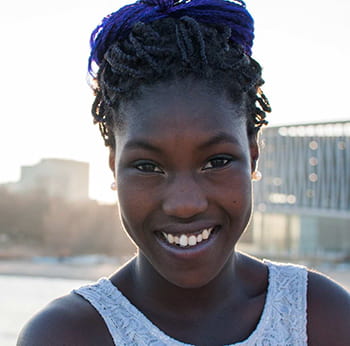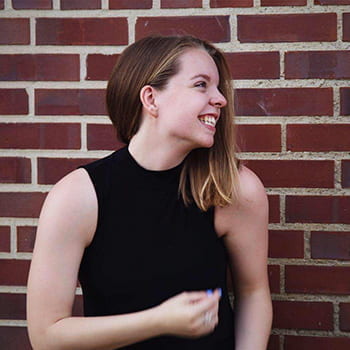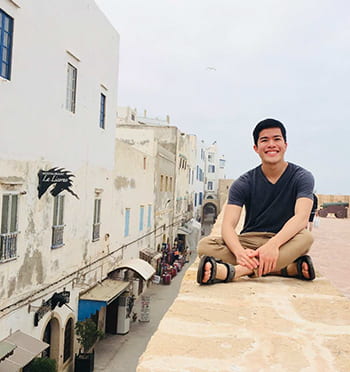Donor generosity endows a pivotal academic experience for students.
Recognizing the importance of opportunities for undergrads to perform research first-hand, Heather, ’92, and Felix Baker made a generous gift to endow and name the undergraduate research program at Weinberg College.
“Having the opportunity to work with accomplished scholars conducting primary research to answer fascinating questions helped me become a stronger thinker and problem-solver, and allowed my curiosity to grow,” recalls Heather Baker.
The Baker Program in Undergraduate Research at Weinberg College offers grants to support undergraduate students in independent research, creative work, and presentations at academic conferences. In this way, students are given the opportunity to explore deeply an issue or question of great consequence in collaboration with a faculty expert. This is at the very heart of the Weinberg College mission.
Featured research from students at Weinberg College:
Nadalyn Bangura ’20

Nadalyn Bangura: Remembering Ebola: Memorialization of Ebola in Post-Outbreak Sierra Leone
“My research sought to understand how the collective and cultural memory of healthcare workers that engaged with combating the Ebola outbreak in Sierra Leone may inform the country’s infrastructure, policy, and response to any future disasters. It was incredibly interesting and humbling to be able to hear the stories of those risking their lives to help their country in times of crisis. I am grateful for the opportunity to have exercised skills in qualitative interviews, coding, and problem-solving in order to make this project successful. This research project helped to lay the groundwork for a senior thesis, which will help prepare me for graduate school as I pursue a Master’s in Public Health. A post-graduate experience will strengthen my chances of getting into medical school as I work towards my overall goal of being a practicing physician working to improve the healthcare infrastructure of Sierra Leone.” – Nadalyn Bangura
Anne Zola ’19

Anne Zola: Research on the Effect of Self-Objectification on Women’s Cognitive Performance
“In our culture, women are frequently objectified, that is, treated as simply body or body parts to be used for the pleasure of others. My research focuses on the negative psychological effects of this objectification and what happens when women internalize an objectified perspective of their bodies. This is often referred to as self-objectification—treating oneself as an object to be evaluated and looked at by others. This past summer I examined how self-objectification could affect women’s cognitive performance. Specifically, I investigated whether thinking of their bodies as objects would distract women from tasks requiring a lot of attention. My goal for this project was to create an experimental study that could determine if self-objectification really does influence women’s cognitive performance.” – Anne Zola
Daniel Wu ’19

Daniel Wu: Difference in Ethical Priorities in the National Health Service
“The aim of my research project was to identify areas of difference in the ethical priorities of healthcare professionals (doctors, nurses, staff) and healthcare administrators (policymakers and managers) in the context of pediatric palliative care (PPC). Specifically, the project focused on the topics of patient autonomy, futility, benevolence, and resource allocation. Interviews and surveys were conducted on-site in London with various hospitals in the National Health Service (NHS) including the Great Ormond Street Hospital, the National Institute for Health and Care Excellence, and the Royal College of Paediatrics and Child Health, among other healthcare organizations.” – Daniel Wu
Learn more about the Bakers and their gift to undergraduate research.
